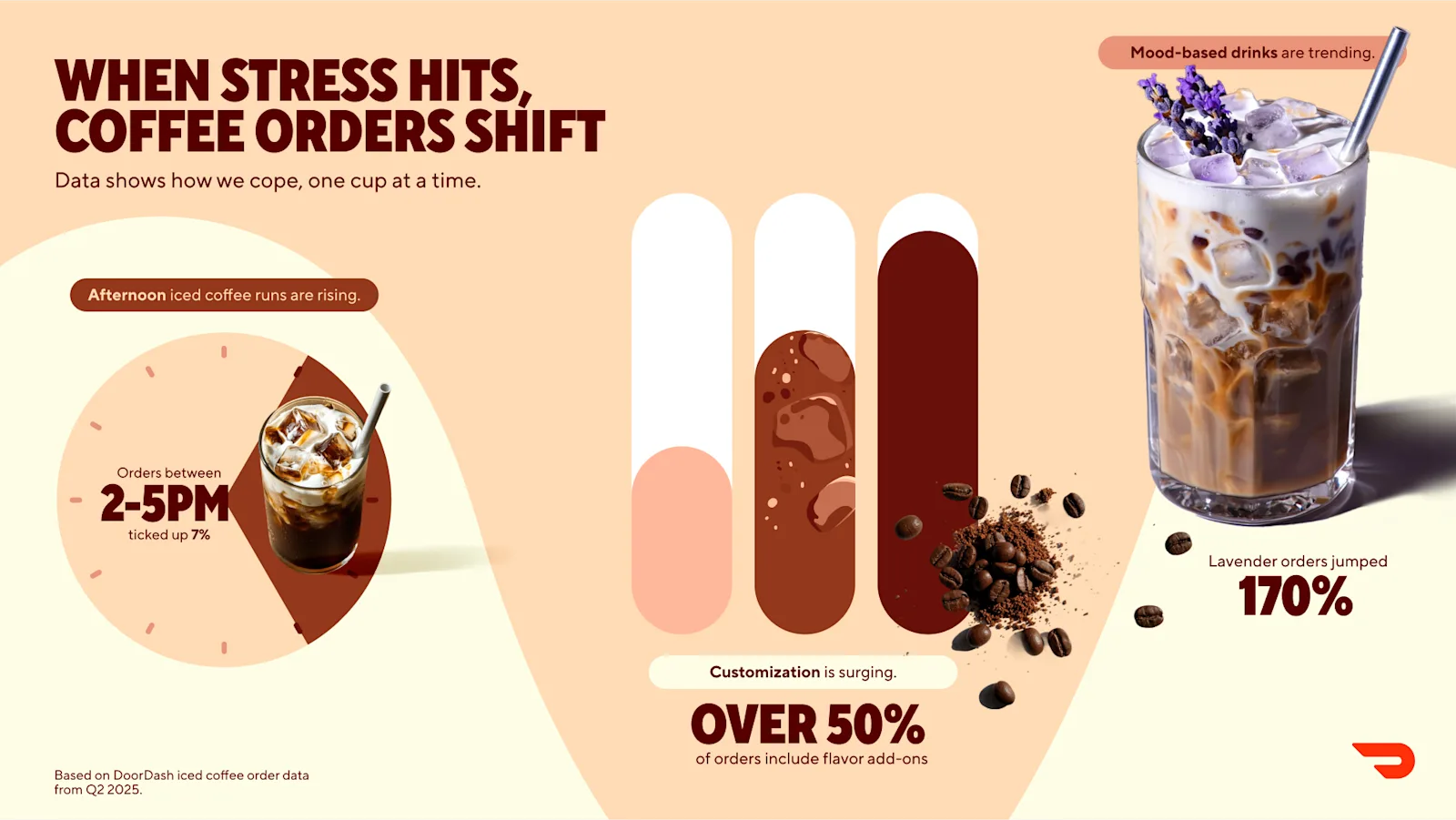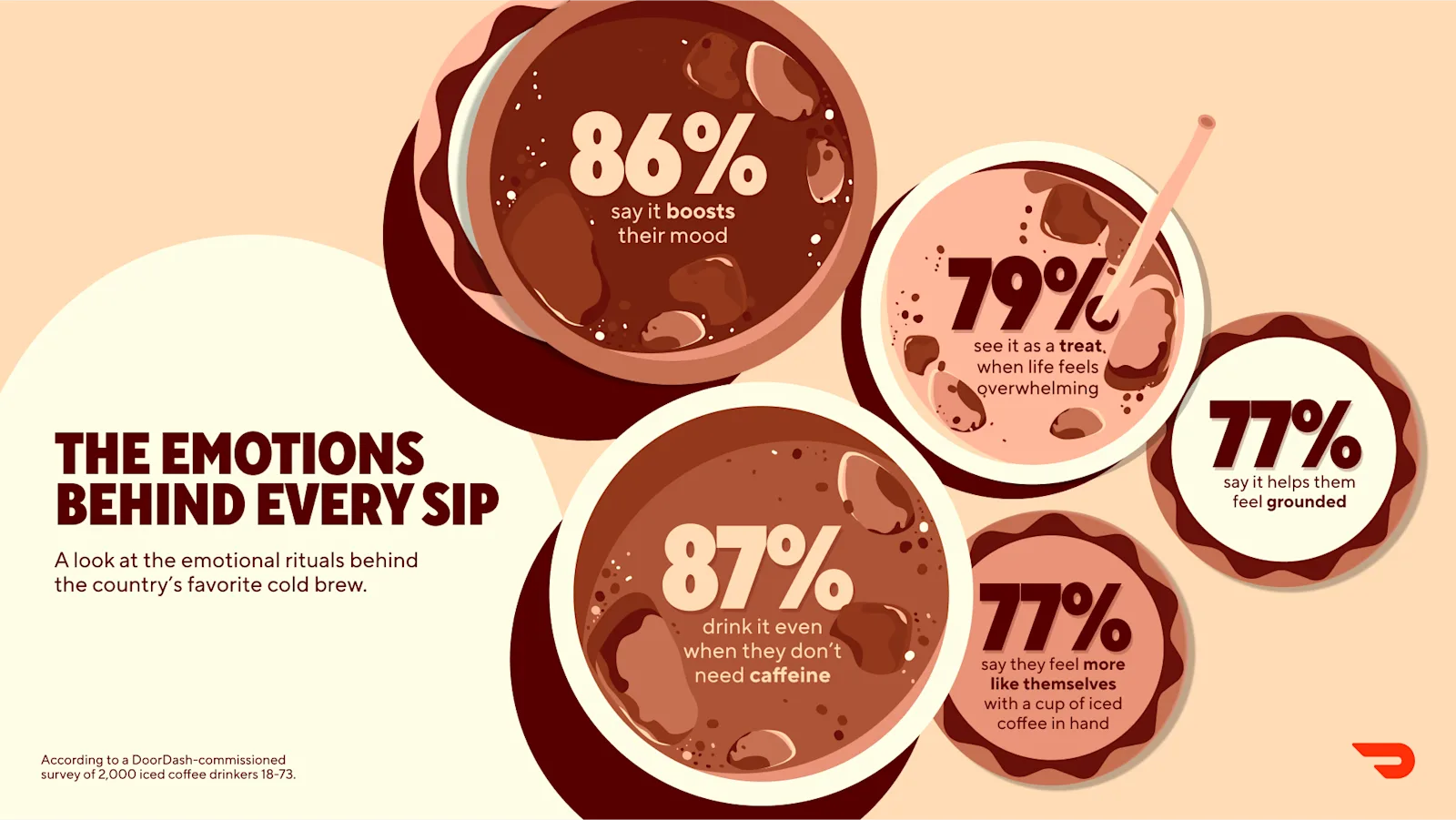Life is a grind, and for many, iced coffee has become emotional support in a cup, according to DoorDash.
The ordering and delivery company launched its Iced Coffee Index Monday, a novel real‑time measure that the company says tracks iced coffee orders to gauge stress levels among American consumers.
Using aggregate internal ordering data and a consumer survey of 2,000 iced coffee drinkers aged 18 to 73, the index generates a score from 0 to 100.
The inaugural Q2 2025 score landed at 85, signaling a high cultural dependency on iced coffee as more than just a caffeine fix, but an emotional coping tool.
The company saw notable spikes in iced coffee orders on several hallmark stress days throughout 2025: Blue Monday (often called the most depressing day of the year, this year taking place on Inauguration Day), Tax Day and amid President Donald Trump’s April 2 tariff announcement. These surges suggest that consumers increasingly turn to iced coffee during emotionally intense or stressful periods, the company says.
“Iced coffee may seem simple, but it’s one of the most revealing behaviors we can track,” Cristen Milliner, Consumer Trends Expert at DoorDash, said. “It reflects mood, energy, and how people are coping with what’s happening around them. The shift in iced coffee behavior this quarter shows that consumers turn to it as an anchor, especially during times of heightened stress like we saw in Q2, when seasonal transitions and nonstop, heavy news cycles left many looking for small, reliable rituals."

Beyond order volume, DoorDash noticed people customizing their little treat. More than 50 percent of iced coffee orders now include a flavor add‑on, and orders featuring lavender flavoring rose by 170 percent, reflecting a preference for mood‑calming customizations.
Afternoon orders between 2 p.m. and 5 p.m. also saw a 7 percent uptick, pointing to the drink’s role in countering midday fatigue or stress.
Survey responses reveal that iced coffee has become deeply intertwined with emotional well-being: 87 percent of respondents said they drink it even when they don’t need caffeine, 86 percent say it boosts their mood, 79 percent see it as a treat during overwhelming times and 77 percent say it helps them feel grounded and more like themselves.

The index draws inspiration from the classic “Lipstick Index,” which similarly tracked small indulgence purchases during turbulent times. DoorDash’s index combines two evenly weighted sources, behavioral order data and consumer sentiment, to create its 0–100 score.
DoorDash said that the coffee index is just the first in a planned series of consumer trend spotlights.
Future reports will examine how everyday ordering habits can reveal deeper emotional and cultural patterns, revealing how consumers use routine behaviors to manage stress, seek comfort and maintain personal balance, DoorDash officials said.







